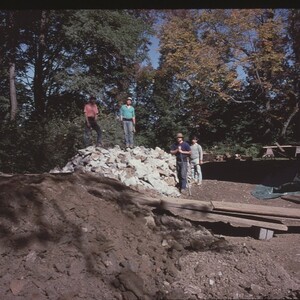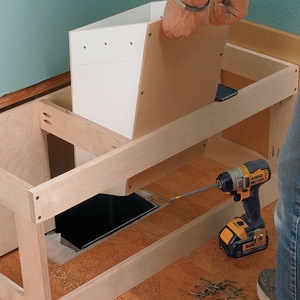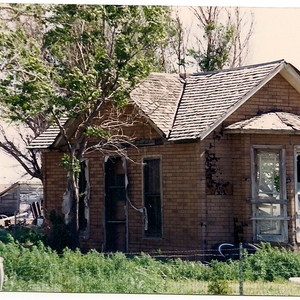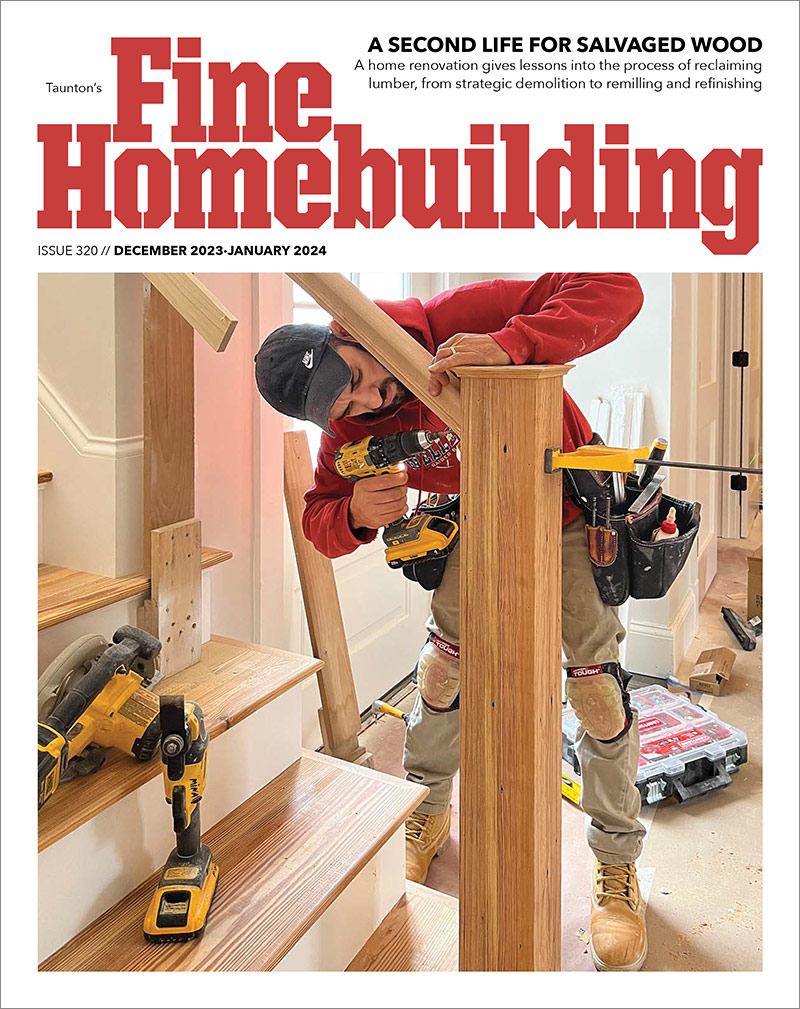an emergency circa 1680 housepipe burst
Well heres my first major catastrophe. Aint areally all that bad but bad enough.
An old cast iron radiator over the floor by my front door that has been leaking serious cold air through the floorgot cold enough to burst the radiator last night.
Dont really need the radiator right now being that its in a small hallway but seems its a loop system and I cant just cap it so I’m trying to just run a piece of copper from one side of the elbow to the other ( I removed the radiator …duh))…..Thing is it seems that the approx. 1 3/8″ connection is cross threaded. I cant get the fuggin new nut on straight on either side.
How does one uncross thread something on the iron side?
Call a plumber? UGH!!!!!!!! Already did but of course he never showed up yet.
HAte not being able to do it myself. Is there a skyhook kinda uncross=threading device?
Cmon guys…. Kinda cold here….the bullet heater only does so much.
Its a tempo fix for now and I’m going to put some electric heat tape over the copper till the spring when I do the big reno.
Be colddddddddd
namasteeeeeeeeeeeeeeeeeebrrrrrr
a
“As long as you have certain desires about how it ought to be you can’t see how it is.”
http://CLIFFORDRENOVATIONS.COM
Edited 3/4/2003 6:03:51 PM ET by Andy Clifford(Andybuildz)


















Replies
If it is temporary, just use a rubber hose and hose clamps, like radiator hoses in your car, but they would be smaller, maybe something like heater hoses would work. Matbe something in-between sized( I don't know what)
One inch galvanized ridgid electrical conduit has an inch and three eighths outside diameter.When a batch of pipe isn't threaded deep enough,or is rusted and funky,we do have hand thread chasers.Or if you have enough room for the head of a ratchet die you could cut a new thread in place.I realize this doesn't get the heat on ,just telling you how we fix fu threads.Wack it with the sawzall and make a trip to the auto parts store.
Is it the nut part of a half union? If so the threads are not NPT (national pipe thread) and will not take on standard pipe threads.......
Just a thought...........blindly on a tangent..................................Iron Helix
Andy, You could try a thread file, get the coarse one. They come fine and coarse, duh.
Or, there is some heavy radiator hose that is all over boats usually. Find a marine supply and get some Gates straight hose. Comes usuakky in 3' pieces, heavy wall and all sizes in 1/8" increases. 1 & 3/8" or whatever is available.
Stuff is tuff, lasts forever.
Joe H
Who moved my K? It's where the L used to be!!
Edited 3/4/2003 9:07:08 PM ET by JoeH
Andy, How big a burst in the radiator? I have used epoxy to seal a small hole in one of my radiators. I found the hole when the paint was stripped off. They don't make paint like that anymore! My system is a one-pipe steam system however, so the pressure is real low....that's not a mistake, it's rustic
Get a pipe tap die. shouldn't be more than 20 bucks at the hardware. Put a crescent wrench on it and carefully renew the threads. Just check to see they are all right hand thread before you buy the die.
Thanks all. The hose ideas sound reasonable if I could get a 4 footer big enough to go over the threaded sides. And trying to rethread them could make things worse...Might just wait for the plumber to show up later today rather than spend a day monkeying around and maybe still not get the job done right.
At least its not freezing out like it has been,
Thanks again
Be warm
Namaste
a"As long as you have certain desires about how it ought to be you can't see how it is." http://CLIFFORDRENOVATIONS.COM
Didn't they hand cut threads in 1680? Wouldn't they all be different?bobl Volo Non Voleo Joe's BT Forum cheat sheet
I figured that it was wooden pipe and they just wittled the fitings.
That's a good century early for precision machine work. Google Henry Maudslay (1771 - 1831) for the origins of precision metal lathe work.
-- J.S.
Thanks everyone for the advice and humor.
the day the plumber said he was coming I figured it out (up all night thinking).
I heated up the elbows that comes out of the floor and got a two foot wrench on it with a cheater pipe attached to that. I got the suckers off and the straight pipe that comes up from the floor was standard enough for me to thread on a copper elbow and complete the job.
Yeeeeeeeee ha! Didnt have to pay a plumber but better yet I figured it out. Gotta love it!
Be persistant
Namaste
andy"As long as you have certain desires about how it ought to be you can't see how it is." http://CLIFFORDRENOVATIONS.COM
oops, did you say "copper"?
With steam, copper can become liberated from the inside of the pipes and 'plate' the iron boiler, which can cause a reaction that can ruin the boiler (rust out the insides).
It is my understanding that not all water is going to cause this to happen, and in some localles its no problem (I forget what the 'ingredient' is that we're supposed to watch out for, sulphur or something like that, over a certain percent - commercial system operators do tests for key contaminates, and you can even have your boiler water tested for things like copper content).
If you're using hot water you're fine (not hot enough, or something to have the reaction), most hot water systems are plummed completely in copper.
In gerneral, though, copper is not a good idea for any part of a STEAM system because it conducts heat too well and can condense it before it gets to your radiator to do its work.
I am sure that for a temporary repair you're fine, but would like to suggest that you use steel/iron pipe for your permanent repair (if steam).
http://www.heatinghelp.com has more info on this topic
Hydronically yours,
Norm
Norm
Thanks.its not steam and all the radiation upstairs had been replaced to baseboard within the same system
Also if you saw this burner you'd laugh your azz off. Cant beleive its gone this far. Its in need of a very long sleep soon...a few more months before it hits the graveyard.
Thanks again
a"As long as you have certain desires about how it ought to be you can't see how it is." http://CLIFFORDRENOVATIONS.COM
There is another good reason for not having iron pipe connected directly to copper. Due to the difference in metal, electrons will transfer much more readily between dissimilar metals, causing galvanic corrosion. I had to replace a section of iron pipe in my church when it started to leak. The leakage was at the point where the old galvanized pipe connected to newer copper. When I put a wrench on the pipe, it crumbled. Think about water heaters and dielectric fittings, same deal.